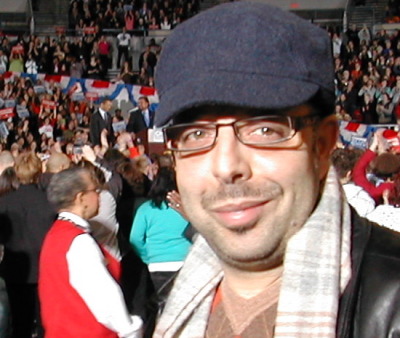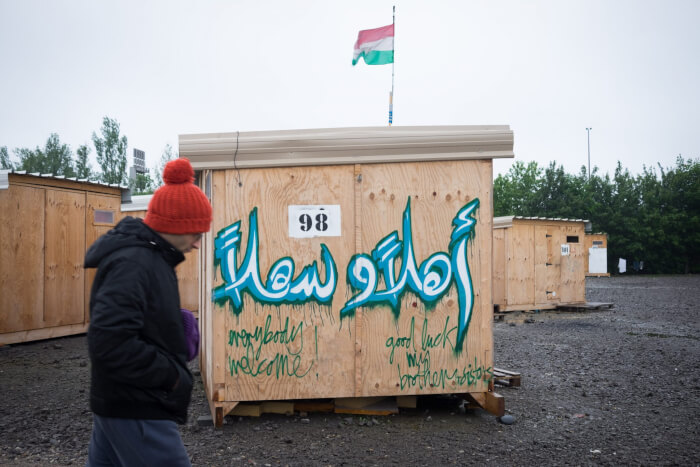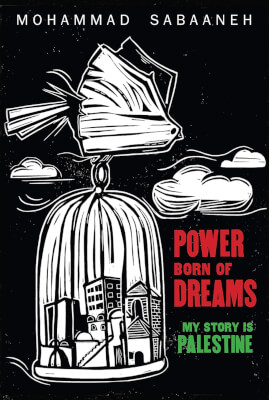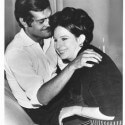Algeria — Political systems that demagogically restrict ethnic politics to a single dimension destabilize democracy in the long run, whereas systems that enrich multiple dimensions of ethnic identity can sustain it
By Abdennour Toumi

After years of political discussion, President Bouteflika and his team laid their cards on the table during a press conference led by the President’s Chief of Staff Mr. Ahmed Ouyahia, and unveiled a draft revision of the fifth Algerian Constitution to be passed by vote in Parliament in coming weeks.
Two key elements emerging from the draft were the limitation of the presidency to two five-year terms and the official registration of Tamazight, the Berber language spoken by millions of Algerians as a national and official language.
The text of the draft will be forwarded to the nation’s parliamentarians for a vote in both chambers before being put to a referendum fifty days after its adoption.
The second point of the text is the recognition of Tamazight, the Berber language, as an official language, whereas previously it only held the status of a national language. The project, which includes an economic and social element, enshrines the principle of freedom, including freedom to manifest “peacefully.”
However, the reaction from the opposition came quickly. The Rally for Culture and Democracy (RCD), an ethnic minority party and strongly outspoken on Berber identity, welcomed the recognition of Tamazight as an official language, but placed reservations on the rest of the text. The party Chairman, Mr. Hohcine Belabbas, qualified it as “trompe l’oeil” (window dressing) noting “an effective transition is not concretely manifested in the public discourse nor in action.”
Yet, the Socialist Forces Front (FFS) did not hesitate to reject the draft of the Constitution’s amendment. “….In substance and in form, constitutional change doesn’t bring any answer that can address the real causes of the crisis…” 1st Chairman Mohammed Nebbou declared to TSA, Algerian online paper.
According to the FFS, this “…will certainly be adopted under the same conditions as previous arbitrary Constitutional revisions.” Considering that “Algeria is suffering from a crisis of governance, legitimacy, trust and a moral and economic crisis,” Mr. Nebbou said, “we do not expect anything from this constitutional amendment because it doesn’t tackle the basic problems that the nation has been facing for decades.”
Thus, the question rests in the role these two main ethnic parties could play in response to this new overture from the regime to the opposition in general and to the Berbers in particular (these are national-level parties, but their voting scores remained in the majority only in the most dominant Kabyle areas in the northeast of the country). The is why the RCD and the FFS are labels as regional/ethnic parties.
So, personal conflicts dominate their political parties because of intellectual and ideological fears and differences, which hinder going after the popular vote nationally and embracing all Algerian social and ethnic groups. This electoral trajectory trapped the RCD and the FFS alike — the fault of communication and long-term party strategies on the one hand, and indeed a demonizing strategy set by the regime since 1963 in the wake of the creation of the FFS by its charismatic leader, Hocine Aït Ahmed.
In the long term, the regime tactics have been destabilizing any credible opposition which has posed any transitional paradigm to change in the political system, its mechanisms and institutions. This includes the Islamists who once seriously challenged the regime in 1991.
The idea of a transitional phase that surfaces in any political opposition leader’s vision is already rejected by the regime and its political and extra-political forces, to the point that, in the minds of many, the existence of any new institutions would not produce any mechanisms for a free and fair election.
Elections, although seen as an input for a transitional regime change, on the contrary, are still considered an obscure concept in the case of Algeria. This is due to the immaturity of politicians and the elite who have not built a constructive political debate within the political space and thus have not presented new faces and new challenges.
What, then, is the status of the opposition in the near future? First there must be an increase in the strength of the opposition within the political scene, then gradually a coordination in democratic transition that all mainstream parties and the media advocate to gain the trust of the voters and readers, and finally an allowance for a new, emerging political force to go neck-and-neck with the regime.
In this stance, the sympathy that the FFS received in the wake of the passing of its leader, Hocine Aït Ahmed, last month spurred a rebirth of national political awareness and subconsciously put the FFS on the national stage, removing the regional/ethnic label it had carried for five decades. Hence it utilized the legacy of its leader to play a vital alternative in the systemic bi-polarization’s conflict and interest between FLN-Islamists.
This scenario could potentially bear a new message and program carried by young political leaders and elites in the party’s establishment to go west and wider, in an effort to gain more popular support and thus shape a new balance of political and cultural powers in the country.
Similarly the Kurdish party in Turkey led by its charismatic leader, Co-chairman Selahattin Demirtaş, is providing a new political face in the spotlight after he scored a stunning election breakthrough in June, 2015. Demirtaş propelled his People’s Democratic Party (HDP) into mainstream Turkish politics with a message that embodies the hopes of Turkey’s biggest minority, but also appeals to non-Kurds including Turkish liberals and the sectarian Alawit minority.
The 43-year-old Demirtaş because a serious political opponent to President Erdogan, who was clearly infuriated after the HDP’s success in the June election. Indeed, HDP blocked his own dream of winning enough seats in Parliament to create a more powerful presidency.
HDP came in third with just under 10 percent of the vote in the 2014 presidential election. Then, in November, it just passed the bare minimum of 10 percent that allowed the party to take seats in Parliament.
Demirtaş and Co-chairwoman Figen Yuksekdağ are trying to appeal to the white and nationalist Turks to find an alternative to the ruling AKParti. Yet Turkey’s on-going geopolitical imperatives have made it very hard for Demirtaş and his party to do so. Demirtaş himself has been making political errors that have cost him his credibility in the Kurdish areas and among the majority of the nationalist white Turks and the conservatives of the AKParti.
As a result, President Erdoğan and his entourage profiled Demirtaş an a Russian/Iranian agent (AJAN), and branded his party as nationalist Kurdish separatist and pro-PKK (considered a terrorist group by Turkey and its Western allies over the three-decades-long armed insurgency that has killed 45,000 people).
Mr. Demirtaş, in an interview with AFP in June, insisted his party had “no organic links with the PKK,” but said, “the PKK is a reality in Turkey.” His position is further complicated by the fact that his brother, Nurettin, has joined PKK fighters at their base in the Qandil mountains in northern Iraq.
Under the leadership of Demirtaş, the HDP became the first pro-Kurdish party in Turkey’s history to win enough votes outside the Kurdish bastions of Şirnak, Deyar Bekir, Mardin and Batman to seat the party in Parliament.
On this parallel, the control of the culture and the political determinants in multi-ethnic and sectarian countries, like Turkey and Algeria, certainly create a political vacuum that historical and political factors impose on a system of unilateral disengagement and imposition in the hope of containing those elements that lead to chaos.
Lack of access to national consensus restricts the political deciders and elites endeavoring to follow a process which suggests political transition. For instance, what is taking place in Turkey under the leadership of the AKParti, would allow minority parties to thrive like the HDP. But the means to achieve a better end are not always available to the local actors on this stage as demonstrated so tragically in Yemen, Iraq, Syria, Egypt and Libya.
In sum, this time the Algerian regime has to distance itself from the patronage mind-set, restrict ethnic politics to a single dimension destabilize democracy, consequently allow a new generation to explore the political space, stop the “rolling dice” of the regime, and thus open the way for a coming Third Republic; when people speak, elected ones submit or leave.


- The Israeli-Palestinian Conflict: Is the Neither-Peace-nor-Security As-sumption Dominating Again? - June 7, 2021
- Algeria: “I Can See Clearly Now” - August 5, 2019
- Majesty Mohammed VI and General Gaïd Salah Tear Down This Wall! - July 29, 2019

























